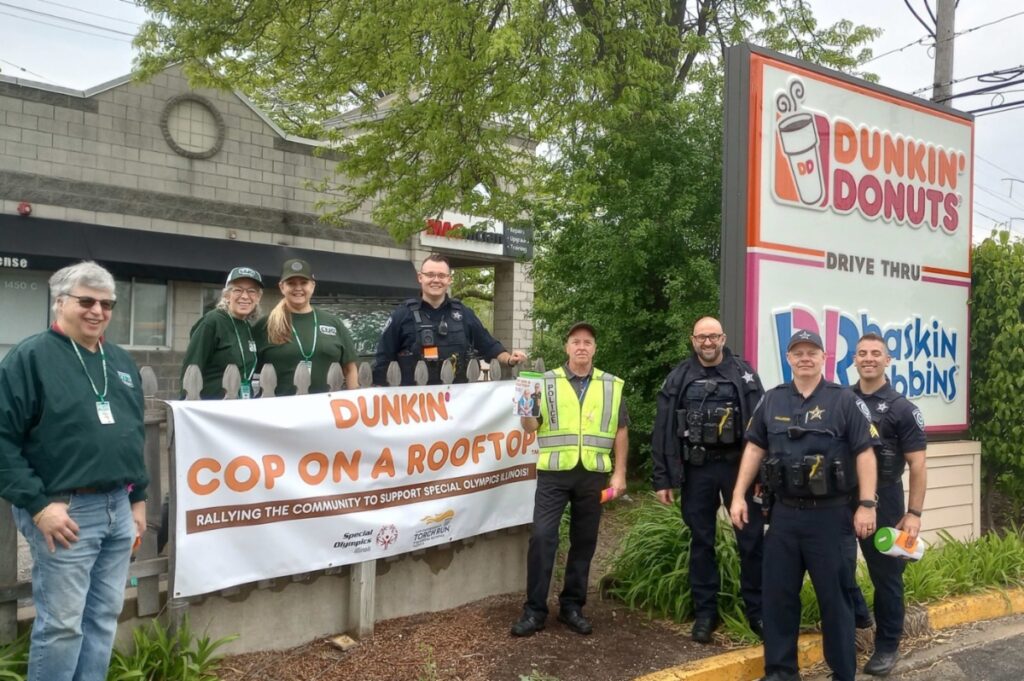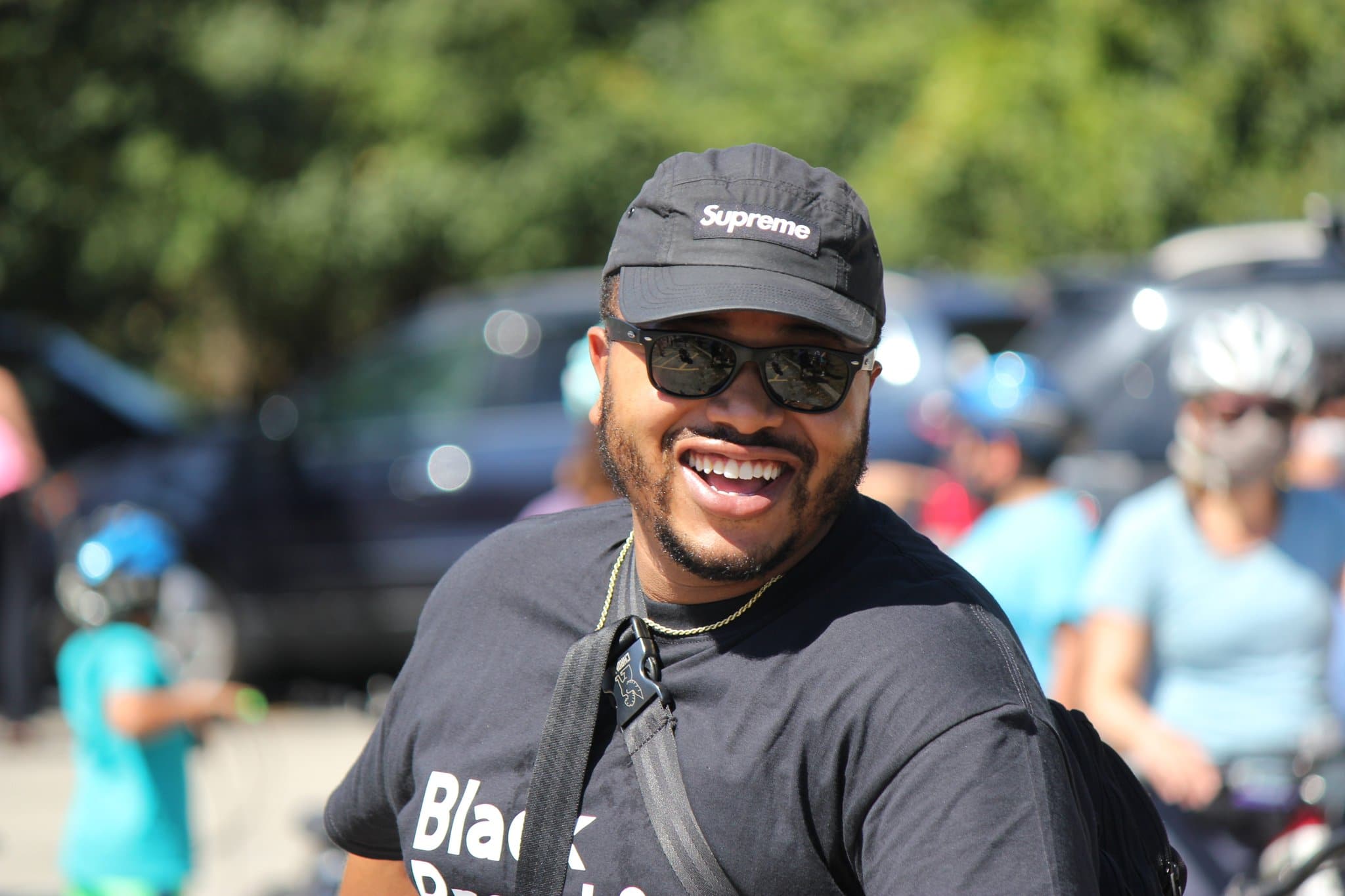
Dozens of supporters join Otis Campbell on bike ride back to scene of August hate crime
Natalie Anthony didn’t expect much to come of a Twitter message she sent Otis Campbell.
The Glenview resident asked Campbell to join her family on a bike ride back to the pier at Winnetka’s Tower Road Beach, the location where in August he was harassed and battered by a White Northfield woman.
Although Anthony’s message was simple in nature, it was an act of kindness aimed at making Campbell, a Black Skokie resident, feel welcome in a community where he was recently a victim of a charged hate crime.
But it did more than that.
Campbell accepted Anthony’s offer, setting the foundation for an afternoon of acceptance on the Bike Back to the Beach that drew close to 100 local riders on Sept. 5.
The bikers rode 2 1/2 miles from Skokie Lagoons in Northfield to the beach, where dozens more supporters met the group.
“Just for everyone to be congregated for one cause, and for it to be behind me, is completely insane,” Campbell told The Record. “I’m at a loss for words; that’s how crazy it is.”
Campbell, a 25-year-old resident of Skokie, arrived in Northfield just before the ride’s scheduled start time of 1 p.m. He immediately felt overwhelmed with the support on display.
“This is a lot more people than I expected,” he told the crowd. “I didn’t think it was going to get this much publicity or love or support. … I love all of you guys and thank you for coming. Let’s enjoy the weather and let’s enjoy the ride.”
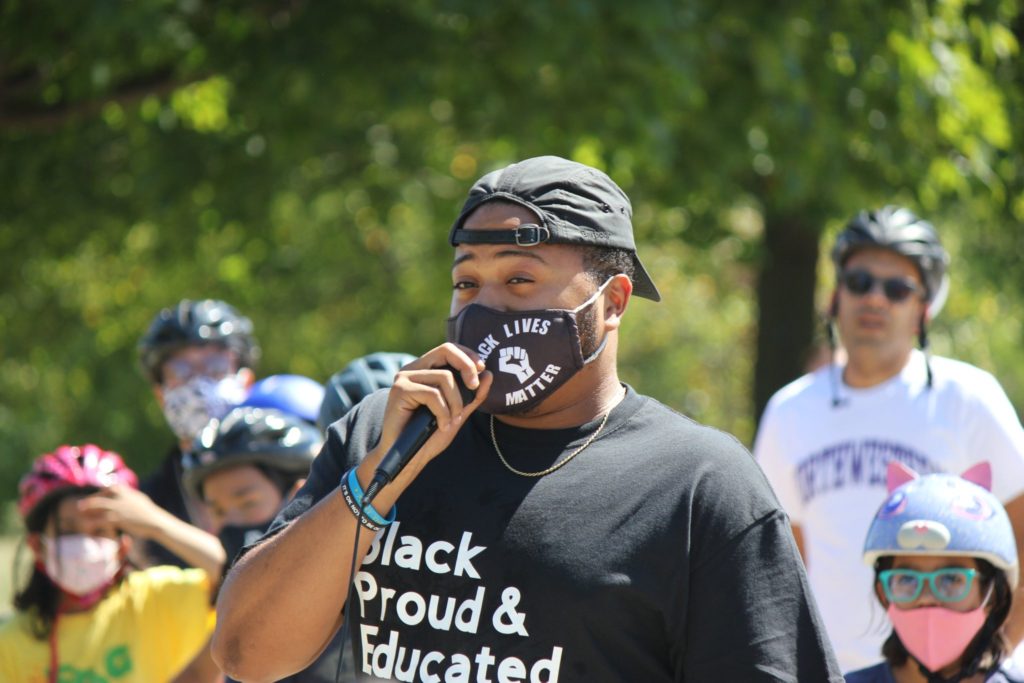
Anthony reached out to Campbell after she saw a digital video — one of three videos posted on social media by Campbell in mid-August — that showed a Northfield woman questioning the right of Campbell and his two fellow bikers to be at the public pier.
The video shows a woman, later identified as 65-year-old Northfield resident Irene Donoshaytis, berating Campbell, who was recording the incident on his cellphone, and then swinging her hand at the phone and Campbell.
In Campbell’s video, Donoshaytis asks Campbell if “he is crazy” and if he “wants to kill” her. Campbell then asks Donoshaytis “why would I want to kill you … is it because I’m black?”
Donoshaytis responds by saying “Yes.”
“When I heard about what happened to Otis … it just didn’t sit well with me,” Anthony said. “I thought this was something that I could do something about. So I followed the trail to his Twitter feed and asked if he would please come back to the North Shore and bike ride with my family to Tower Road Beach. … I just wanted him to feel welcome here.”
Anthony said she planned for the ride to only include a few families. She created a small online group for the ride, but from there, word spread and more community members asked to join the ride.
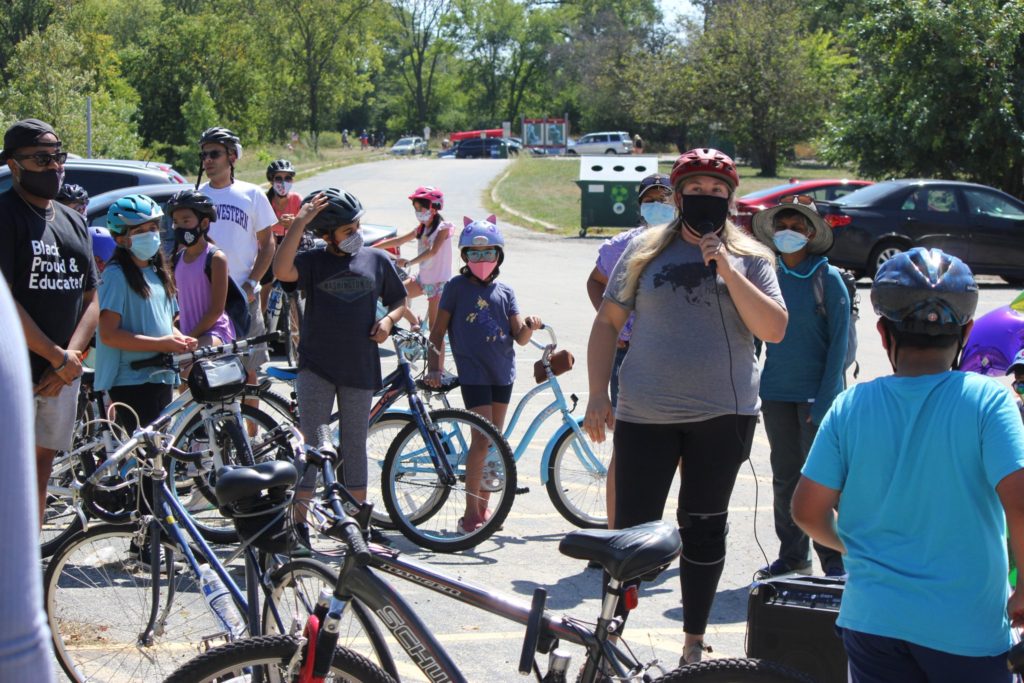
“The video that went viral was really disturbing, so we wanted to be really supportive on the other end, with positivity, and show … that’s not who we are or what we believe in,” said Carlos Cata, a resident of Winnetka for nearly 20 years.
The Aug. 17 incident was not Winnetka’s first run-in with racism, as Elena Cata pointed out, adding that any past and current racial tension on the North Shore should be recognized.
“I thought (this event) was really important,” said Elena Cata, a junior at the University of Wisconsin-Madison. “Winnetka historically is an incredibly racist town … and Kenilworth as well. So it’s a positive way to show that there are a group of people in Winnetka who definitely support this mission but also recognize the racist history and that Winnetka is not a perfect town.”
Many locals, who either joined in the ride or were stationed near the beach, made signs welcoming Campbell. The Matthews family, of Winnetka, was among those displaying messages of support.
“We heard about the incident and wanted to show that Winnetka — as someone who was raised in Winnetka and now raising my kids in Winnetka — does not stand for any hatred,” said Gina Mathews, who attended with her husband, Devin, and child, Quinn. “We use our voices, speak out and shut down racism when we see it, and make it very clear — loud and clear — to the world that racists are not welcome in Winnetka. And your views are going to be stood up against, if you bring your racist views to Winnetka.”
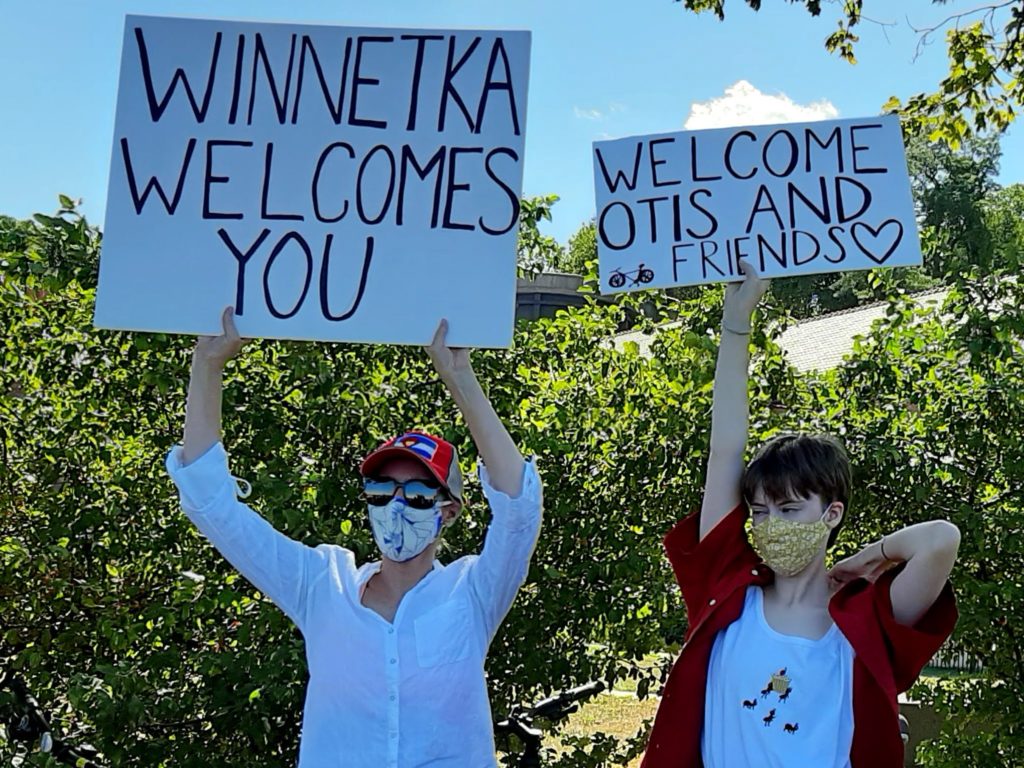
Quinn added: “To have this many allies, White allies, show up to a space like this … to support people of color who have been harassed by other White people just shows that there are people with more privilege who are willing to support you and stick up for you. It’s a good thing to see and show.”
Avoca School District 37 community members Ami Desai Das, Maya Vasudevan, Alejandra Garcia and Miyako Hasegawa joined Anthony in the bike ride’s planning.
Despite racially charged altercation, Campbell feels ‘no animosity’ toward Winnetka
Otis Campbell was going to return to Winnetka no matter what.
He had biked back to the North Shore several times already since the racist incident on Aug. 17.
He was never fearful to return to the area, but the invite from Anthony brought him a certain joy.
“Man, honestly I felt so wholesome and so welcomed by the town (after hearing from Anthony),” Campbell said. “For her to do that, it just was a positive upbringing. It wasn’t taking away any animosity or anything because I didn’t feel anything toward (Winnetka) and it’s just a good educational moment for … all the North Shore to be honest.”
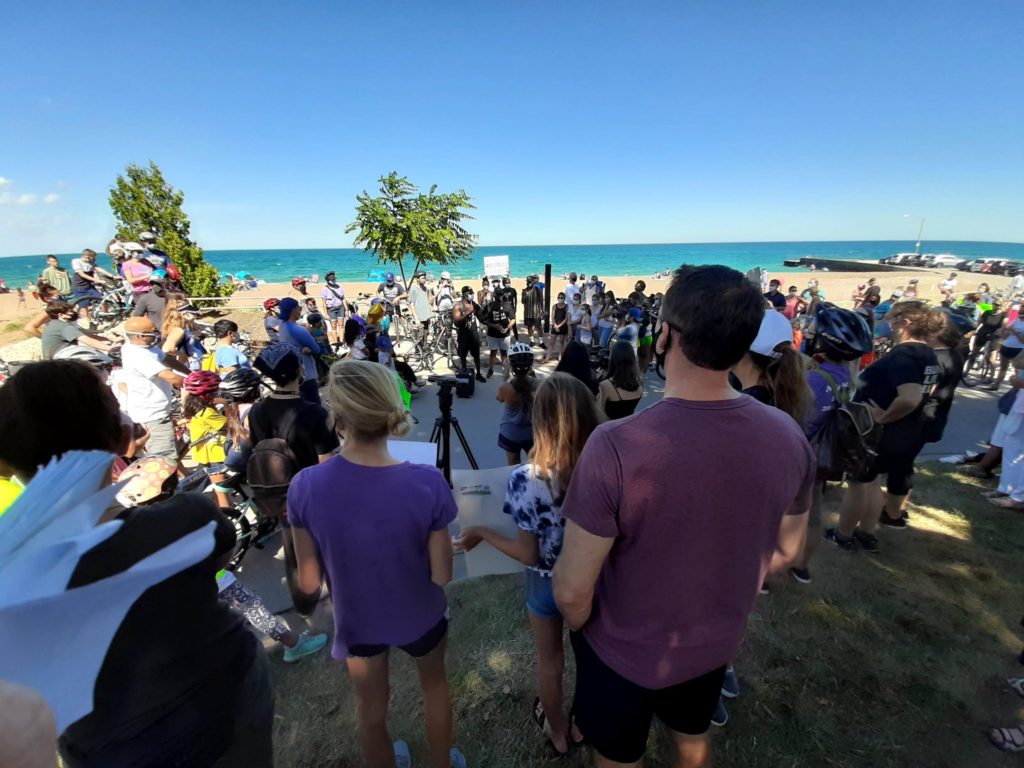
Campbell said the support he’s received since the incident is a sign that people are willing to listen and are not willing to ignore racism.
“For people to take the time out of their day and type a message to me, or take a time out of their day to create a group to go on a bike ride with everybody, that right there … these actions right here, they mean the world to me,” Campbell said.
“It starts with one person. I could care less if a celebrity or the news sees (what happened). I want the people of my community and the people next to me, to share the story and to say ‘hey, this stuff is real.’”
Donoshaytis was originally charged with battery for the incident. An additional charge — a Class 4 hate crime — was later added.
Campbell said the added charge is a sign of what the judiciary and courts system believes is right. But he also believes no one should be defined by one moment.
“I am not the one who is putting this on her,” he said of Donoshaytis. “ … Honestly, I wish this woman the greatest of luck, because I honestly think she is more than what this is … putting her up as a racist. I think she is way more than that. I think she is a part of this community and I think that she can be a part of this community and she isn’t any type of threat to anybody. She made some dumb decisions.”
Weeks after the incident, Campbell feels relieved the situation ended like it did.
“For the fact of me being here, and on planet earth, and not having this end in a tragedy, that’s the biggest thing for me because that (incident) could have swung in any direction,” he said. “I could have been the next Jacob Blake, the next any of these names that are out there.
“George Floyd, that was the biggest one for me man. For that man to be begging for his life and then to be killed after, it’s completely inhumane. Let’s be honest, that happens all the time. And for the person that is wrong getting arrested, for that to be the anomaly, that is what is wrong in the world. For the justice system to finally play out correctly and for it to go viral, that is what’s wrong in the world. This needs to be normal. It needs to be normalized. Black people shouldn’t be judged at face value and Black people should be accepted into a community just like everyone else is accepted.”
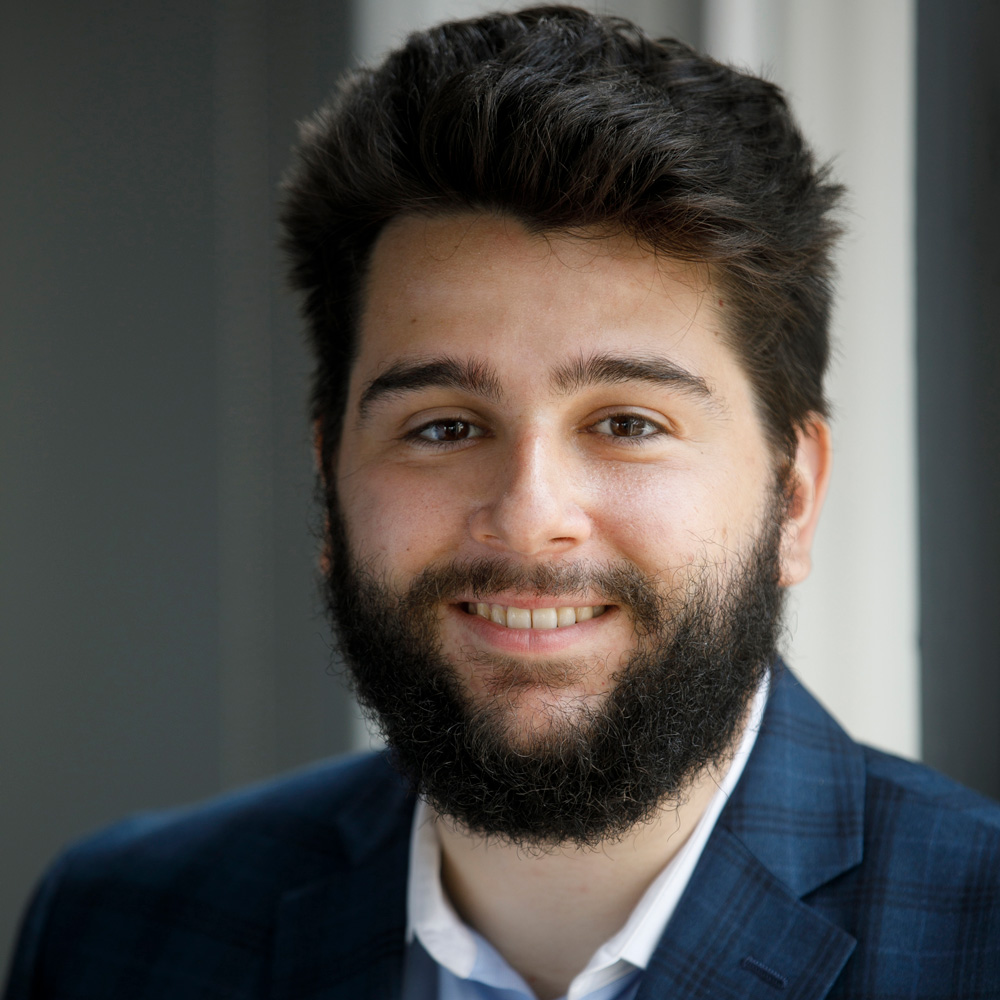
Martin Carlino
Martin Carlino is a co-founder and the senior editor who assigns and edits The Record stories, while also bylining articles every week. Martin is an experienced and award-winning education reporter who was the editor of The Northbrook Tower.


